If we think about sex and musicit may be reggaeton the first genre that comes to mind. Firstly, because of the explicit component of its lyrics and videos, and also because it is a genre developed in the Spanish language, which has perhaps displaced from our gaze others in which it has also been discussed, such as rock or pop. Yes, indeed: before Don Omar and Daddy Yankee, The Beatles, Prince, Led Zeppeling or The Rolling Stones They had already touched on the topic.
However, what we can say is that The way of talking about sex in each musical style is different and particular. And in the case of reggaetón, it is one of the pillars of the genre. This particular style, which has become one of the favorites of the new generations and is going through its absolute boom, was born in Puerto Rican underground nightclubs in the 90s. Derived from a mix with Panamanian 80s reggae, it did not take long to build its own icons: from Yankee and Don Omar to Vico C. Hector el Father, Nicky Jam and Tito El Bambino, among others.
One of the central criticisms within the urban genre has always been, precisely, andl treatment of sex and the representation of women in it. Currently, there are a wide variety of academic studies that analyze the discourse present in reggaeton songs and its impact on society, especially on younger population sectors. And several of them have certified the importance of the cultural impact that these have on social behavior, since it has been documented that exposure to sexual content has an important relationship with the expectations of sexual activity, the beginning of relationships, the permissiveness within of the same and the fact of carrying out or not carrying out risky sexual practices.
Some elements reiterated in these analyzes within reggaetón are “the denigration of women” (a term repeated in several of these reports), as well as their “objectification” (the (un)popular concept of “object woman”), and the “dehumanization”. However, most of these studies focus on analyzing well-known reggaeton songs written and performed by men, but, Have our reggaeton divas managed to change the narrative around sex in music? Let’s see it.
Talking about sex in the first person: the arrival of female desire
Previously we have reviewed female reference artists such as Madonna have managed to transform the music industry and the social understanding of sexuality since the 80s. Since then, female desire began to acquire a greater presence, although not in all musical styles equally.
In the 90’s, Ivy Queen was the first reggaetonera in confronting a genre dominated by the male gaze, carrying out a complicated trajectory that media outlets like Billboard have considered vital: “With songs like I want to dance, Ivy Queen “She has represented women in a movement that took off commercially, being dominated by men with aggressive lyrics, where she established herself as a bluntly feminist conscience.”
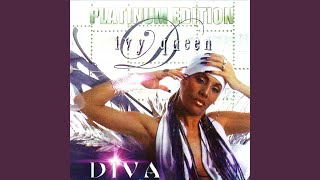
Here we also find other artists who, although they did not have the same recognition, were also present in the evolution of the genre, such as Lorna either glory. In her songs, a fundamental movement occurred for the reciprocal understanding of sex: the presence and expression of female desire. “Because I am the one in charge, I am the one who decides when we go to the mambo, and you know it. The rhythm is taking me, the more you hit me, the more I’m hitting you,” Ivy sang in the aforementioned I want to dance.
However, if we have to look at the most relevant female artist in the genre who has offered a true paradigm shift when it comes to talking about sex, that is without a doubt. Karol G. One year after the release of his hugely successful studio album, Tomorrow will be nice (2023) who has won all possible awards – including a Grammy and several Latin Grammys – it is clear that the artist represents an unprecedented success in the globalization of reggaeton, even in countries like the United States. And between 2020 and 2022, Latin music consumption in the country has grown by 55.29% according to Luminate, far surpassing 21.61% of the general industry and the four largest genres in the country such as R&B/hip-hop (12.17%), rock (22.28%), pop (20.64%) and country (19.22%).
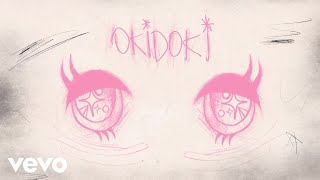
Precisely, within this latest release and its B-side, Tomorrow Will Be Beautiful (Bichota Season), We find some letters that show a change of perspective in sexual representation. In OKEY DOKEY, a song in pure Motomami style, the Colombian talks about how oral sex is better now that she is not with her ex: “This big girl is a cocky / I tried it on her, how delicious it tasted / It’s better than I thought / “It’s richer than what I had,” he sings. An explicit content that we can also see in several songs such as Catwoman either Karmika.
A particularity that Karol’s style has when it comes to talking about attraction in her songs that perhaps we do not find in the most popular songs. old school of the genre is a greater complexity when expressing feelings. That is, when he talks about sex, he doesn’t just talk about sex. It also adds other components to the song that transcend the act itself, such as the fact of investigating how you feel or the type of relationship you want or not to have. Factors that give us a greater understanding of female sexual desire in this case.
Other examples of female artists who have contributed to giving greater visibility and centrality to the role of female desire in urban music are Anitta, María Becerra, Becky G, Natti Natasha, Emilia or Rosalía, among other. In fact, when it came out HENTAI The networks were revolutionized by the meaning of the song, but it is an ideal example of the female expression of sexual desire, which also moves away from the traditional rhythms of the genre towards a more pop acoustic horizon. How can we forget the very viral “I want you to ride, like my bike / Make me a tape, spy mode / I beat her, until she got on / The second thing is to fuck you, the first thing is God”? It is not the first time that the artist has masterfully portrayed the essence of sex, she already did it in SAY MY NAME in The Bad Want (2018).
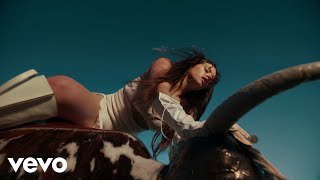
It is worth highlighting, of course, the especially explicit character of those artists most linked to dancehall, a genre that in itself is also articulated through desire and sensuality, such as Tokischa —which for some reason has become a bestie of Madonna, even starring with her in the remix of Hung Up— and Bad Gyal, who has once again revolutionized the charts with his debut album The Joy, where the lead single is titled nothing more and nothing less than Lost This Ass.
On a more emerging level, we also have a wide variety of divas who have transgressed with their way of narrating desire. Moon Ki in Septembercaused a real viral sensation, while The Zowi, from trap, perhaps represents one of the most notable changes in the representation and perception of female sexual desire, as we can see in her recent collaboration with Lola Indigo, I have a boyfriend. The Chilean artist Tomasa del Real has also changed the tables in this area, as has the explicit drill artist Mary Myleswho is inspired by other powerful references such as Nicki Minaj or Cardi B.
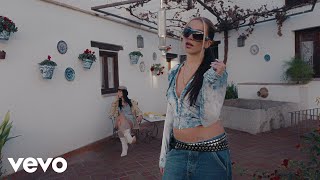
Change of sender and receiver: women who write to other women
If the fact that women talk about sex in music continues to cause a stir—we only have to look at those artists who have recently been criticized for doing so, such as Aitana or Lola Indigoamong others—it is also worth highlighting the relevance and the – still – innovative character in the industry of those letters written by women who desire other women. Perhaps the strongest boom in this sense has hit Young Mikowho in the last year has become one of the most relevant female artists in reggaeton.
Since her beginnings, the Puerto Rican has focused her songs and lyrics on sexual attraction, and directed them all towards other girls. This is how hits like FINA, Classy 101 either Lisa. It is impossible to erase from our heads his “speak clearly, I have a problem, and that is that I quickly get into girls.” And she is, without a doubt, one of the LGTBQ+ references in the industry globally, along with other performers such as Antillean Villain either Snow Tha Product.
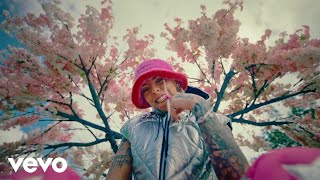
However, we also have to point out other examples where, although the artists have not expressed themselves openly about their sexuality, they also write to other women from desire. It is the case of Karol G in her recent WITH YOUor in QLONA, her collaboration with Peso Pluma, where the Colombian sings: “You are provoking me even though you do it unintentionally 7 I already asked about you and more than a month ago / You left yourself with that fool / What motherfuckers I want to kiss you / I saw you in a photo and I imagined you without clothes / I would lie to you if I’m not crazy to see you / With that little jean, how big-assed you look.”
It is also the case of Nicki Nicole in A Photo Remixor in 8AM, where in both cases he writes to a female recipient. “Little eye, she looked at me, I looked at her / We went on a trip, she wanted to and I left her / We arrived at my house, I put her in one more three’ / She knows who I am, she wants me to give her ( bandit)”. We find the same in Jermuthe explicit collaboration between La Joaqui, La Zowi and Omar Varelawhere the Argentine artist incorporates the sound of her moans into the song.

In short, all of these artists have represented gigantic steps in terms of the different ways of understanding sexual desire beyond the entrenched heterosexual male gaze. Our divas have not only given us great hits with which we can empathize, they have also managed to break the barriers of objectification, building their own subject; a mirror in which other women can also recognize ourselves.

![TRIPPIE REDD è headliner del MILANO DREAMCITY FESTIVAL 2024 [Info & Biglietti]](https://www.wecb.fm/wp-content/uploads/2024/02/1709044475_TRIPPIE-REDD-is-the-headliner-of-the-MILANO-DREAMCITY-FESTIVAL-150x150.jpg)




